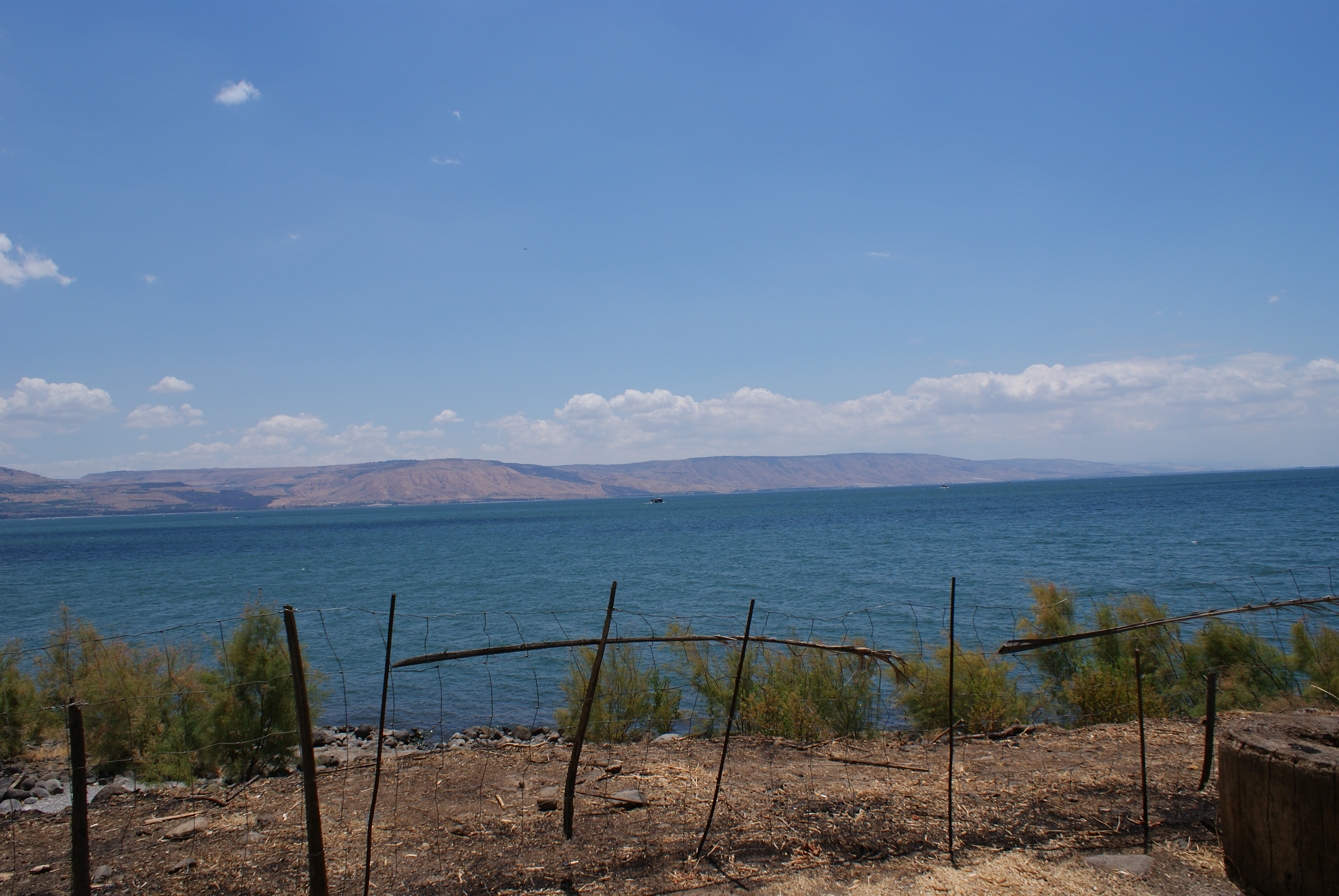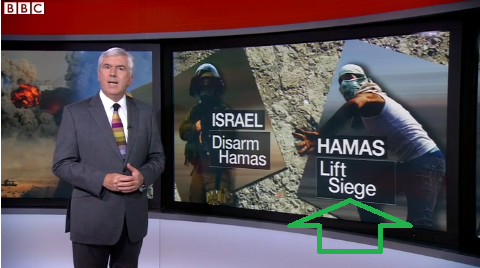The BBC’s July 2013 backgrounder titled “Middle East peace talks: Where they stand“, which includes details of what the BBC defines as the “core issues” of the current negotiations between Israel and the PLO, has been appended to many articles appearing on the BBC News website’s Middle East page as a ‘related article’.
At the bottom of that webpage, under the heading “more on this story”, audiences still find links to the four highly problematic articles going under the title “Obstacles to Peace” which – despite being dated 2010 – were actually originally produced by Martin Asser in mid-2007.
We have previously discussed here three of Asser’s pieces – see ‘related articles’ below. The fourth article in the series is titled “Obstacles to Middle East peace: Borders and settlements“. 
Asser elects to completely ignore the San Remo conference and the Treaty of Sevres in 1920 which brought about the creation of the Mandate for Palestine by the League of Nations. Hence, he is able to begin his flawed account in 1948.
“The modern Israeli state was forged in the fires of the first Middle East war in 1948-1949, but from the beginning it was a state without clear borders.”
The borders of the Mandate for Palestine were of course amply clear. The fact that surrounding Arab countries chose not to respect them when Britain abandoned its role as administrator of the Mandate and the State of Israel was declared is the real issue which Asser chooses to conceal. He goes on:
“Jordan and Egypt have signed treaties with Israel, turning some of the 1949 ceasefire lines into state borders. But the absence of final settlements with Syria, Lebanon and the Palestinians mean most of Israel’s boundaries remain potential flashpoints and the state itself is unstable.”
In fact, the border agreed upon by Israel and Jordan within the framework of the 1994 peace treaty does not run along the 1949 ceasefire lines at all, but this obvious inaccuracy has nevertheless been allowed to stand on the BBC website for seven years.
Asser continues by failing to clarify that it was the “Arab forces” who initiated the war against the nascent Jewish state:
“In 1948, when British rule of Palestine ended, Israeli forces managed to push most of the Arab forces that joined the war to the former Mandate boundaries, which became temporary ceasefire lines.
The exceptions were what we now know as the West Bank, which remained under Jordanian control, and the Gaza Strip, which was controlled by Egypt.”
By use of the word “exceptions”, Asser fails to adequately clarify to readers that the 1949 ceasefire lines agreed with Jordan were also specifically defined as temporary. He then promotes the chimera of the UN partition plan, which of course is entirely irrelevant to the issue under discussion because it has no legal standing due to the fact that it was rejected by the Arab side to the dispute.
“Thus Israel came into being on 78% of the former Palestine, rather than the 55% allocated under the UN partition plan.”
Asser then moves on to 1967 – once again failing to note why that war broke out and the fact it was Jordan’s decision to join the attack which led to the capture of Judea & Samaria.
“Fast forward to 1967, when Israel captured both the West Bank and Gaza Strip, as well as Syria’s Golan Heights and Egypt’s Sinai peninsula.
Israeli-controlled land now stretched from the Jordan Valley in the east and the Suez Canal to the west; it completely enclosed the Sea of Galilee in the north, and gave it a foothold on the Straits of Tiran in the Red Sea.” 
Asser’s assertion that only after 1967 did the Sea of Galilee become “completely enclosed” by territory under Israeli control is inaccurate.
“The 1923 Franco-British Boundary Agreement came about after the British High Commissioner at the time, Herbert Samuel, demanded and got full control of the Sea of Galilee and the Upper Jordan River. The border was set 100 meters to the east of the Jordan River, with a ten meter-wide strip at the north-eastern side of the lake and a broader strip at its south-eastern side included in the territory of the Mandate for Palestine.”
Asser goes on to make a gratuitous reference to Israel’s former presence in southern Lebanon, with no mention at all of the cross-border terror war waged by the PLO which brought about the first Lebanon war.
“The Sinai was exchanged for peace with Egypt in the early 1980s (at about the time Israel occupied south Lebanon, where it remained until withdrawing unilaterally in May 2000).”
Asser then turns his attention to communities in Judea & Samaria, including the usual incomplete BBC representation of their legal status which – in breach of editorial guidelines on impartiality – fails to inform readers of the existence of conflicting opinions regarding the claim that “settlements are illegal under international law”.
“The settlements are illegal under international law, but Israel disputes this and has pressed ahead with its activity despite signing various agreements to curb settlement growth.”
Which “agreements” those are supposed to be is unclear, but Asser certainly makes no attempt to clarify to readers that the terms of the Oslo Accords – willingly signed by the representatives of the Palestinian people – do not include any restrictions on Israeli building in Area C. Neglecting to mention Hebron’s historic Jewish ties as well as its status under the terms of the Oslo Accords, Asser then goes on to claim that:
“The first settlers were religious Jews who remained in Hebron after celebrating Passover there in 1968.”
In fact, Mehola in the Jordan Rift Valley was established in 1967, and Kfar Etzion was reestablished in Gush Etzion in the same year. Ignoring the fact that at least a third of Israeli residents of Judea & Samaria do not identify as religiously observant, Asser presents a cherry picked portion of scripture as though it were the basis for contemporary Israeli policy:
“The settlement movement has become closely affiliated to Jewish religious nationalism, which claims boundaries of modern Israel based on Genesis 15:18: “God made a covenant with Abram and said, ‘To your descendants I give this land, from the river of Egypt to the great river, the Euphrates’.” “
That leads on to a blatantly political presentation of a ‘timeline’ which completely ignores the terrorism of the post-Oslo years and the second Intifada.
“On both political and religious grounds, therefore, it has been extremely sensitive for Israeli politicians to dabble in land-for-peace negotiations.
Prime Minister Yitzhak Rabin pushed for a two-state solution in the 1990s, and was made to pay for it with a Jewish nationalist assassin’s bullet.
Successors Ehud Barak and Ariel Sharon unilaterally pulled out of south Lebanon and Gaza, respectively – both of which moves were followed by a resurgence of violent confrontation in subsequent years, discrediting that approach.
Benjamin Netanyahu managed to put the brakes on Rabin’s historic drive for a two-state solution in the 1990s and has been in no rush to get to the negotiating table during his second term.”
Asser’s piece ends with outlines of various ‘solutions’ to the issue where he makes a reference to some mysterious “further territorial compromises” on the part of representatives of the Palestinian people who, in their various line-ups over the years, have refused the partition plan, refused to make peace after the Six Day War, scuppered the Oslo Accords and failed to respond to Olmert’s peace proposals.
“Further territorial compromises (having already been squeezed into 22% of pre-1948 Palestine) could also be a bitter pill for the Palestinian faction that favours a two-state solution, the Fatah party led by Mahmoud Abbas.”
Although he does note that Hamas is opposed to any negotiated end to the conflict, Asser eliminates Hamas’ terrorism from the picture entirely and fails to clarify its opposition to the Saudi Arabian initiative which he mentions, or the fact that Hamas is not alone in its opposition to Israel’s existence. He ends up by suggesting that Israel is to blame even for Hamas’ stance:
“In the long term, therefore, Israel’s reluctance to accept the existing Green Line in some ways plays into the hands of militant Islamist groups such as Hamas.”
Asser’s article also includes a side box in which, inter alia, it is stated that:
“Settlements and the area they take up cover 40% of the West Bank”
With even the PLO negotiator Saeb Erekat having stated that Israeli communities in Judea & Samaria take up 1.1% of the land, one might wonder where the BBC sourced that bizarre 40% figure. One possibility is a report put out by the highly politicised UN OCHA in the same year that Asser wrote this article which states in its introduction that:
“The analysis shows that almost 40% of the West Bank is now taken up by Israeli infrastructure.”
Later on readers learn that nature reserves and military training areas also count as “infrastructure” for UN OCHA.
“More than 38% of the West Bank now consists of settlements, outposts, military bases and closed military areas, Israeli declared nature reserves or other related infrastructure that are off-limits or tightly controlled to Palestinians.”
The BBC’s claim that “settlements and the area they take up cover 40% of the West Bank” is therefore obviously both inaccurate and misleading.
In light of the fact that the current round of negotiations has – like its predecessors – so far failed to break new ground, it is all the more regrettable that the BBC continues to promote this partisan and misleading article by Martin Asser from which attacks on Israel by neighbouring countries and ideologically driven terrorism are completely erased. Like the rest of the outdated “Obstacles to Peace” series, this item fails to provide BBC audiences with the sort of accurate and impartial information they need if they are to be able to “participate in the global debate on significant international issues“.
Related Articles:
BBC’s “Obstacles to Peace” do not hold water – part 1
BBC’s “Obstacles to Peace” do not hold water – part 2
BBC’s ‘Obstacles to Peace’: wrong on right of return – Part 1
BBC’s ‘Obstacles to Peace’: wrong on right of return – Part 2
BBC’s “Obstacles to Peace” erases pre-1967 Jewish history in Jerusalem




